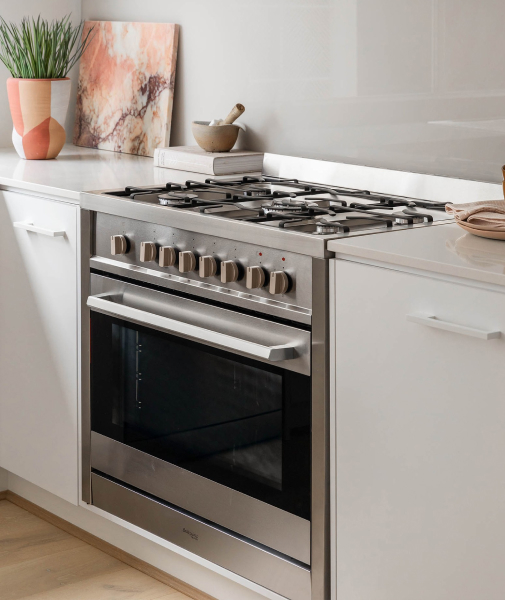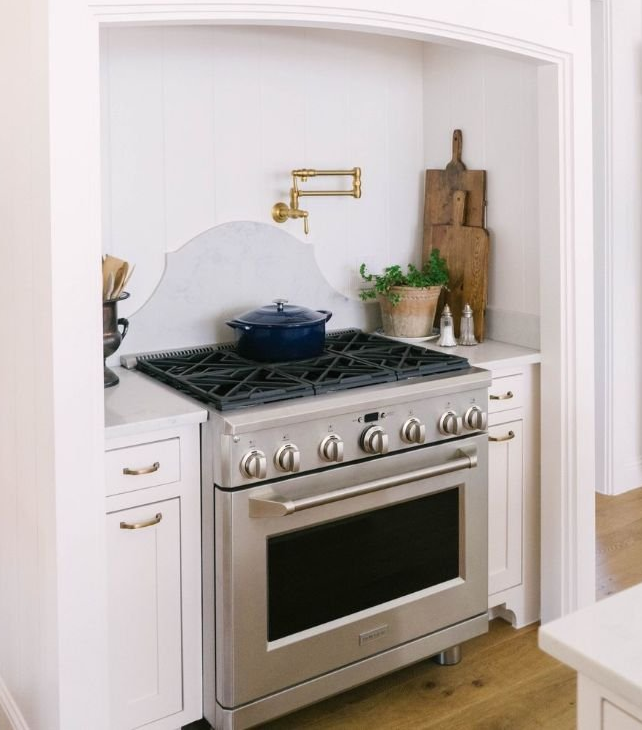How does the Stove work?
Understanding the inner workings of your stove can help you troubleshoot minor issues and make informed decisions about its maintenance. A stove consists of several key components, including:
Cooktop: The cooktop is the surface on which you place your pots and pans for cooking. It can be made of various materials, such as glass, ceramic, or stainless steel, depending on the type of stove.
Burners: Burners generate heat for cooking. In gas stoves, the burners are connected to a gas supply, while electric stoves have electric coils or induction elements that heat up.
Control Knobs: Control knobs allow you to regulate the heat of the burners. They enable you to adjust the temperature according to your cooking requirements.
Oven: Some stoves come with an oven compartment, allowing you to bake, roast, and broil food. The oven is equipped with heating elements or gas burners to generate the necessary heat for cooking.
Understanding these components and their functions can help you troubleshoot common stove problems and communicate effectively with our technicians if you need assistance.
Types of Stoves
Stoves come in various types, each offering unique features and advantages. Here are the most common types of stoves available:
Gas Stoves: Gas stoves use natural gas or propane as their fuel source. They provide instant heat and precise temperature control, making them a favorite among professional chefs and cooking enthusiasts. Gas stoves are also known for their even heat distribution, allowing for excellent cooking results.
Electric Stoves: Electric stoves rely on electricity to power the burners. They feature electric coils or induction elements that heat up when electricity passes through them. Electric stoves are known for their easy-to-clean smooth cooktops and precise temperature control.
Dual-Fuel Stoves: Dual-fuel stoves combine the best of both gas and electric stoves. They feature gas burners for the cooktop and an electric oven. This type of stove offers flexibility and versatility in cooking options.
Each type of stove has its unique maintenance requirements and potential issues. It’s important to understand the specific needs of your stove to ensure its optimal performance and longevity.
Significance of Regular Stove Maintenance
Regular maintenance is key to ensuring the efficient and reliable performance of your stove. Here are some reasons why regular stove maintenance is important:
Safety: Regular maintenance helps identify and address potential safety hazards such as gas leaks or faulty electrical connections. It ensures the safe operation of your stove, minimizing the risk of accidents or fire hazards.
Improved Performance: Over time, stoves can accumulate dirt, grease, and food residues, affecting their performance. Regular cleaning and maintenance help remove these deposits, allowing your stove to function at its best. Proper maintenance also helps prevent issues like uneven heating, burner problems, or control knob malfunctions.
Extended Lifespan: Well-maintained stoves tend to last longer. By addressing minor issues and preventing major breakdowns, regular maintenance can significantly extend the lifespan of your stove. This saves you money in the long run by avoiding the need for frequent repairs or premature replacement.
Energy Efficiency: A properly maintained stove operates more efficiently, consuming less energy. This leads to energy savings and lower utility bills.
Taking care of your stove through regular maintenance not only ensures its reliable performance but also contributes to a safe and enjoyable cooking experience for you and your family.









